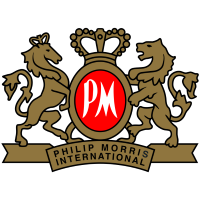
Philip Morris International Inc
NYSE:PM

Intrinsic Value
The intrinsic value of one
 PM
stock under the Base Case scenario is
129.12
USD.
Compared to the current market price of 163.21 USD,
Philip Morris International Inc
is
Overvalued by 21%.
PM
stock under the Base Case scenario is
129.12
USD.
Compared to the current market price of 163.21 USD,
Philip Morris International Inc
is
Overvalued by 21%.
The Intrinsic Value is calculated as the average of DCF and Relative values:

Valuation History
Philip Morris International Inc

Fundamental Analysis

Intensifying regulatory scrutiny on heated tobacco products threatens to slow PMI’s IQOS adoption, as limits on product marketing and stricter health warnings in key markets like the EU and Japan could undermine growth for its flagship reduced-risk brands.
PMI’s robust IQOS franchise, bolstered by next-generation devices like ILUMA, remains a clear leader in heated tobacco technology. Continued expansion, especially with potential U.S. reintroduction and further global penetration, positions PMI to offset declining cigarette volumes with healthier margins on reduced-risk products.

Revenue & Expenses Breakdown
Philip Morris International Inc

Balance Sheet Decomposition
Philip Morris International Inc

| Current Assets | 20.2B |
| Cash & Short-Term Investments | 4.2B |
| Receivables | 4.7B |
| Other Current Assets | 11.3B |
| Non-Current Assets | 41.6B |
| Long-Term Investments | 2.7B |
| PP&E | 7.3B |
| Intangibles | 27.9B |
| Other Non-Current Assets | 3.7B |
Free Cash Flow Analysis
Philip Morris International Inc

| USD | |
| Free Cash Flow | USD |
Earnings Waterfall
Philip Morris International Inc

|
Revenue
|
37.9B
USD
|
|
Cost of Revenue
|
-13.3B
USD
|
|
Gross Profit
|
24.5B
USD
|
|
Operating Expenses
|
-10.7B
USD
|
|
Operating Income
|
13.8B
USD
|
|
Other Expenses
|
-6.8B
USD
|
|
Net Income
|
7B
USD
|
PM Profitability Score
Profitability Due Diligence

Philip Morris International Inc's profitability score is 58/100. The higher the profitability score, the more profitable the company is.

Score
Philip Morris International Inc's profitability score is 58/100. The higher the profitability score, the more profitable the company is.
PM Solvency Score
Solvency Due Diligence

Philip Morris International Inc's solvency score is 50/100. The higher the solvency score, the more solvent the company is.

Score
Philip Morris International Inc's solvency score is 50/100. The higher the solvency score, the more solvent the company is.
Wall St
Price Targets
PM Price Targets Summary
Philip Morris International Inc

According to Wall Street analysts, the average 1-year price target for
 PM
is 152.2 USD
with a low forecast of 103.02 USD and a high forecast of 183.75 USD.
PM
is 152.2 USD
with a low forecast of 103.02 USD and a high forecast of 183.75 USD.
Dividends
Current shareholder yield for  PM is
.
PM is
.
Shareholder yield represents the total return a company provides to its shareholders, calculated as the sum of dividend yield, buyback yield, and debt paydown yield. What is shareholder yield?
The intrinsic value of one
 PM
stock under the Base Case scenario is
129.12
USD.
PM
stock under the Base Case scenario is
129.12
USD.
Compared to the current market price of 163.21 USD,
 Philip Morris International Inc
is
Overvalued by 21%.
Philip Morris International Inc
is
Overvalued by 21%.
























































 You don't have any saved screeners yet
You don't have any saved screeners yet